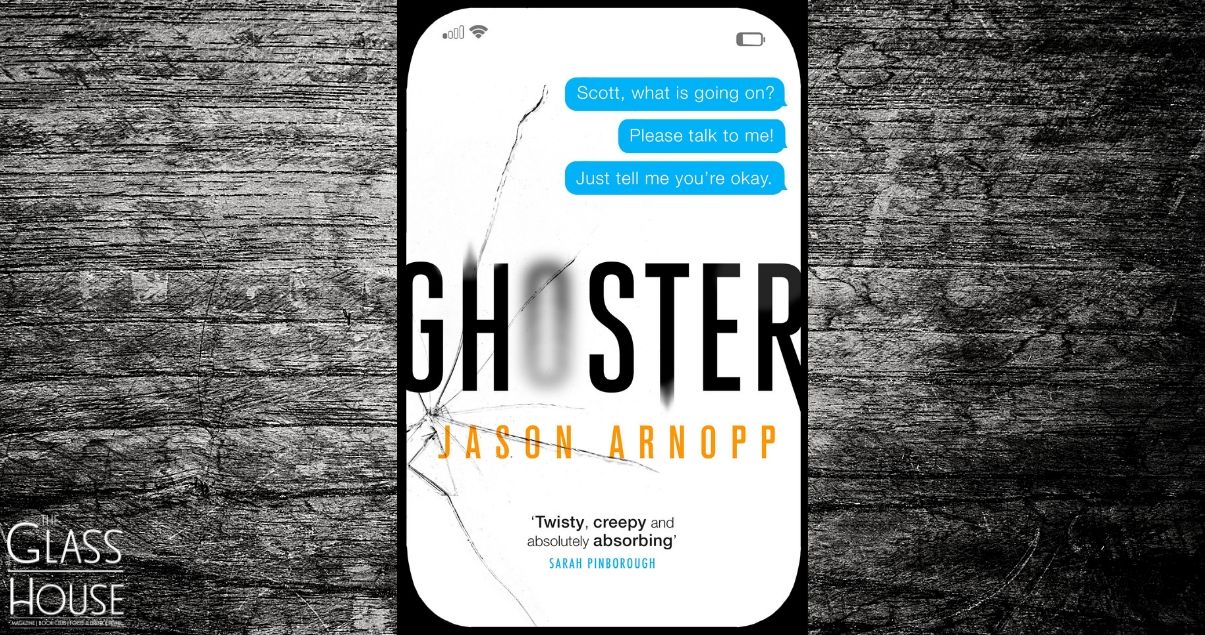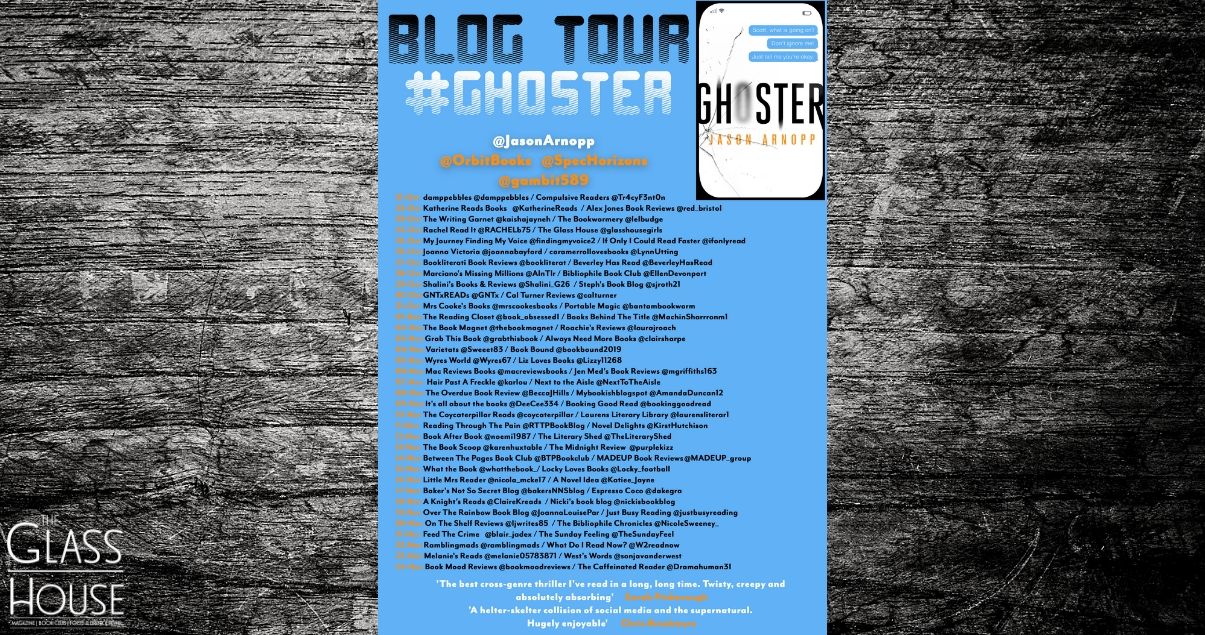The Inspiration Behind Ghoster by Jason Arnopp
Sometimes I worry that my new novel Ghoster and its predecessor The Last Days Of Jack Sparks may come across as if they’re preaching. Both of them highlight the dark sides of social media, tech and the online world, but that’s what horror does as a genre. It’s only the dark sides of things that provide story fuel. I’d be hard-pressed to create a terrifying story out of the lovely aspects of the net.
Premise:
Ghoster is about paramedic Kate, whose boyfriend Scott disappears on the eve of her moving from Leeds to Brighton to live with him. When she breaks into his flat, all his possessions have disappeared too… except for his mobile phone. As a self-identified phone addict, should Kate crack into Scott’s phone to find out where he’s gone and why he’s done this to her? Why do scratches keep appearing on the inside of the front door? And why does she feel so very watched?
Inspiration:
The inspiration for Ghoster came from thinking about how much of ourselves and our personal details we feed into our phones. These devices we carry around all day, they literally remember more about us than we can remember about ourselves. If you had the chance to delve inside your partner’s phone, consequence-free, would you? Or might you be too scared of what you might find? This all felt like fertile soil to play around with, and when I came up with the idea of Scott leaving only his phone behind, the premise felt nicely accessible and ‘grabby’.
The second inspiration for Ghoster was really the urge to explore exactly what the net and our phones have done to our brains – specifically in terms of addiction. Have we now formed bonds with our phones that we might find surprisingly hard to break? I’d certainly begun to believe so, which was a scary prospect. And obviously, when it comes to fiction, I like nothing more than a scary prospect.

Writing Process:
I really don’t know if I have one set writing process, but I do love pen and paper when I’m working out a story. I’ll write a central idea (“Guy vanishes, leaving only phone behind”) in the centre of a pad and draw a circle around it, then have arrows pointing out towards other circled ideas that spring to mind, such as “Should his gf open the phone?” I think people call this a Mind Map or something like that, but it’s great for brainstorming and forming important links between your ideas.
I also love to visit the Basketmakers pub in Brighton with my author friend John Higgs, so that I can introduce him to a few of the ideas and we can play around with them. When you’re a creative person, you need at least one good sounding board in your life. John was so helpful with the initial formative stages of Ghoster, because there are so many different ways you could go from that initial idea. In one night at the pub, we established the basic direction of Ghoster and I still have the notepad I used to prove it. Incidentally, the Basketmakers pub features in the novel, along with a few other of my favourite places in the city.
Once the story’s direction has been established, I’ll put pen to paper once again, in order to work out the plot itself. In other words, the way all the story’s dominoes fall and hit each other. Different writers swear by different plot structures, but in the end it’s all the same – beginning, middle and end. Although lately I’ve been going for the four-act structure, which feels nice. And that’s all the matters – that the story feels good and right.
Once I have the plot mapped out, there is no secret process from that stage onwards. You sit down and you write and write and write, all while trying to convince yourself that the internet’s myriad entertainments do not exist. That is all there is. Hard work, willpower and as few distractions as possible.
Having braved this latest marathon, I’m so happy that Ghoster is finally out in the world for all to enjoy… if ‘enjoy’ is the right word. People have already told me the book made them think twice about checking their phones while reading. Could it have that effect on you?
(Note from the Editor: We would like to thank Jason for joining us on The Glass House today and sharing the inspiration behind his latest novel, and many thanks to Tracy Fenton at Compulsive Readers and Orbit Books for inviting us on the blog tour.

To read more about Jason and his work, you can follow him on Facebook, Twitter, or of course read more about his other books over on his personal website and of course, don’t forget to pop over and pre-order Ghoster.)








